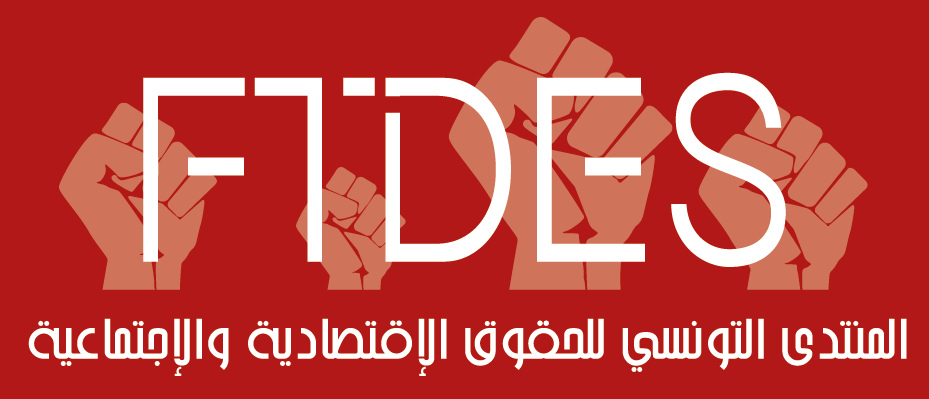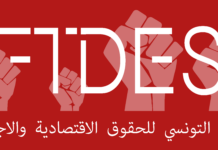No to the monopoly of what “the people want”
The President of the Republic issued the draft of the new constitution resulting from a unilateral and exclusionary process throughout which he monopolized an allegedly direct relation with the people via the so-called national consultation. The President seemed to contradict himself as he built his narrative on the glorification of the December 17 revolution which was the culmination of long-standing civil, social, feminist, political, and syndicate struggles and resistance that evolved since the dawn of independence in the margins, universities, unions, and scarce civic and political spaces where sacrifices were made and cannot be forgotten. The President was never actively involved in those struggles and is not entitled to ignore or deny the gains of those historical times and phases.
The December 17 – January 14 revolution was a milestone bearing the dream of building a state that guarantees the right to recognition, expression, and inclusive participation, protects freedoms, and establishes genuine social justice.
With all its social and political turmoil, we consider that lessons learned from the recent phase of this pathway revolve around the dangers of dysfunctional power balances that serve those who work on undermining the revolution’s gains and impeding its historical progress as a necessary entry point to social change and justice for all. It is why we, along with a significant fraction of people and civil actors, considered the 25th of July as a turning point towards a necessary rupture with both distant and recent pasts and a moment of renewal of hope for a just, democratic, and prosperous Tunisia. We pinned our aspirations on the prospects of constructive change that would put an end to the degradation of the political and parliamentary landscapes.
However, a year later, none of this has been achieved due to the absolute monopoly of powers, the marginalization of youth and social institutions and forces as well as national and civil society organizations and political parties, the resolute work on jeopardizing gains, and the rejection of any form of real democratic dialogues, which nurtured fears of a return to authoritarianism.
The 2014 constitution was not free of flaws, and we could have worked on its amendment to make it better. After the issuance of the President’s draft constitution, those who participated in consultations disavowed it and warned about the gravity of its deviations and urged Tunisians to reject it.
The President of the Republic continues to defend the new constitution’s draft despite wide expressions of its rejection and sees himself as the sole figure capable of explaining it to the people, leveraging his position and state apparatus for a direct electoral campaign aiming at reassuring citizens that he is their voice and representative and that the proposed draft is their constitution and what will save the state from imminent collapse.
We, the FTDES, alongside our social and civil partners, have been at the forefront of resistance before July 25, and we announced our position after the issuance of Decree 117 and rejected every deviation and prospect of power concentration, and stressed our choice during the National Convention for Social and Civil Movements on the 10th of December 2021, the choice to work on an alternative pathway that opens new perspectives of convergence and collective action with civil and social movements, youth movements and initiatives, the Tunisian General Labor Union (UGTT), and leading social and political forces to protect freedoms and impose the return to true democracy and the establishment of a national emergency plan for socio-economic recovery.
The President’s draft constitution does not live up to these expectations and shuts the doors in the face of a social and democratic republic. It even paves the way to the establishment of an authoritarian regime that does not guarantee the balance of powers and does not reassure Tunisians as per their freedoms and rights, but also brings tensions over identity back to the table and abandons the principle of the civil state in its fifth article.
Equally, article 96 of the draft constitution represents a real threat to rights, freedoms, and social and youth movements as it constitutionalizes the perpetuation of the state of emergency and that of exception measures, both not subject to control as per the draft. This is coupled with further articles that undermine demands for the independence of the judiciary in the absence of which fears over the reinforcement of the policing rationale will grow, especially since a looming mass social mobilization is expected given the protracted, acute, and unresolved, economic crisis. The FTDES insists that there is no other way to reach social stability and cohesion other than a rights-based approach focused on development that would take us all to the safe shores of social democracy.
Considering the dangerous risks that this proposed project bares, we renew our commitment to defending rights and freedoms and to working as one alongside all components of civil society to confront this dangerous deviation by all civil and peaceful means and to continue supporting social and youth movements in defense of economic, social, and civil rights and restoring hope in achieving the revolution’s goals of freedom, dignity, justice, and development.
Tunisian Forum for Economic and Social Rights (FTDES)
Abderrahmane Hedhili, President

 العربية
العربية English
English





